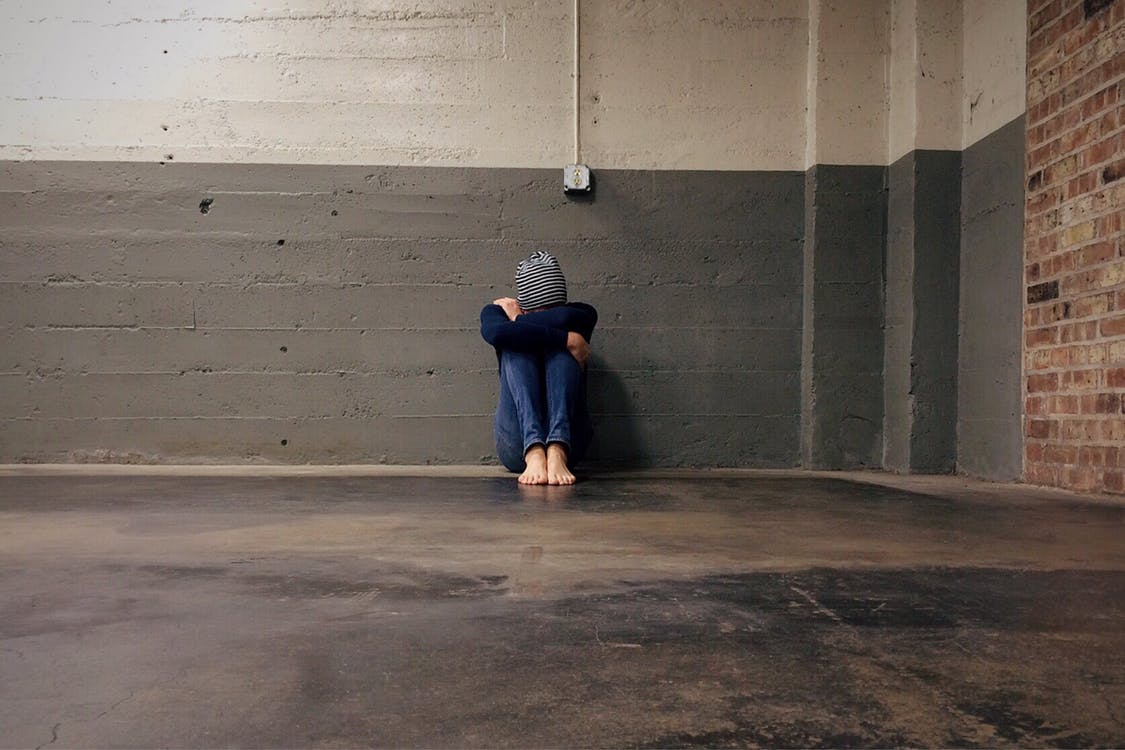Imagine waking up one day and feeling — different. Wrong. Sometimes you feel anxious for no reason, and other times you experience a heavy sense of dread. Seeing family members and friends, even your husband or wife, doesn’t make you feel the same as it used to. In fact, your closest loved ones may feel like strangers to you.
You forget things — everyday things you should remember, like your address or how old you are. It makes you frustrated and angry, but there’s nothing you can do about it. You feel helpless and trapped in this different world with no way back to the normal life you had before.
“This scenario might sound like something out of a horror movie, but for many brain injury victims, it’s their reality. “
This scenario might sound like something out of a horror movie, but for many brain injury victims, it’s their reality. Brain injuries can have a wide range of emotional and psychological effects. And while many of these symptoms aren’t as well-known as the physical effects of a brain injury, they can be just as debilitating, if not more so.
Identifying the Emotional Aspects of Traumatic Brain Injury
In many cases when a traumatic brain injury (TBI) occurs, the victim or people around them will notice the physical signs right away. The victim may experience bleeding, a loss of consciousness, dizziness, or vomiting immediately following the injury. In the days and weeks that come, patients often complain of headaches, fatigue, ringing in the ears, and/or blurred vision.
“While these physical signs are often easy to spot, emotional signs and symptoms of a brain injury may not be as clear.”
While these physical signs are often easy to spot, emotional signs and symptoms of a brain injury may not be as clear. The emotional signs of TBI may also take longer to appear.
In general, any time you notice unusual behavior after you or someone else has suffered an injury to the head (including a supposedly “mild” brain injury, which is often called a concussion), it could be a sign of a serious TBI. In these cases, it’s extremely important to see a doctor as soon as possible for further testing.
What Emotional Signs and Symptoms Do TBI Victims Experience?
The emotional symptoms of a TBI can be related to both the injury itself and the stress that the injury causes. The following emotional symptoms are commonly associated with traumatic brain injuries:
- Irritability: Like many of the emotional symptoms of a TBI, irritability might seem like a normal and harmless behavior at first. After all, everyone gets annoyed from time to time. But TBI victims may experience lengthy and consistent bouts of anger or frustration over everyday events or as they struggle to perform seemingly simple tasks, and this symptom shouldn’t be taken lightly. If you’ve experienced a head injury, you may suddenly find yourself at wit’s ends trying to handle basic, everyday mental tasks, like remembering a brief grocery list or adding up simple sums. This may be a sign or symptom of a brain injury, and you should talk to a doctor.
- Mood swings: Traumatic brain injuries can lead to seemingly random and drastic mood swings. Individuals who have suffered a brain injury may experience moments of hard-to-control emotional responses, like hysterical laughter or inconsolable grief and weeping. These rollercoaster shifts into anger or giddiness can frighten victims and the people around them.These mood swings may appear to happen for no reason, but they’re strongly associated with an injury to the frontal lobe and may be an indicator of a TBI. Unfortunately, many victims don’t report this symptom to doctors or even their loved ones because they feel embarrassed or depressed about their inability to keep their emotions in check.
“If you’ve experienced a head injury, you may suddenly find yourself at wit’s ends trying to handle basic, everyday mental tasks, like remembering a brief grocery list or adding up simple sums.”
- Anxiety and depression: Many people who have suffered a TBI struggle with anxiety, which often feels like a sense of dread or doom that comes on for no reason. Of course, brain injury victims really do have something physically wrong with them, which means their anxiety isn’t baseless. Their anxiety may seem out of control, though, and may resist normal behavioral treatments like breathing exercises and relaxation techniques.To complicate things further, the victim may begin to feel seriously depressed. As millions of sufferers know, clinical depression is no mild case of “the blues,” but rather a prolonged state of hopelessness and malaise that can lead to violent thoughts and contemplating suicide. Anxiety and depression may cause fatigue, restlessness, and insomnia, all of which can leave the victim exhausted and make the problem even worse.
- Behavioral issues: After suffering a TBI, the patient may exhibit a flatness or unresponsiveness to events that would normally stir strong emotions, including interactions with friends and loved ones.One head injury specialist in the U.K. began to study these symptoms after he noticed that loved ones of his TBI patients consistently reported a sudden “lack of warmth or love” from the victims after their accidents. His studies found that TBI sufferers consistently showed less empathy for others than the average person, and they often had trouble recognizing emotions in other people as well.On the other hand, brain injuries are very unpredictable, and they can have the opposite effect. A victim who used to be reserved and even-tempered may start exhibiting behavioral issues like heightened temper, insecurity, impulsiveness, self-centeredness, highly sexual behavior, or manipulative tendencies.
Even this long list of behavioral symptoms can’t cover every emotional change that TBI victims may experience, and the emotional signs of a TBI can mix with the physical symptoms in complicated ways.
“The most important thing to remember is to speak with a doctor right away if you or a loved one is experiencing emotional or behavioral changes after a head injury.”
The most important thing to remember is to speak with a doctor right away if you or a loved one is experiencing emotional or behavioral changes after a head injury — and to contact an experienced brain injury lawyer if someone else’s careless behavior caused your suffering.
Crosley Law Fights for Brain Injury Victims
If you or someone you love has experienced a traumatic brain injury or other serious injury due to someone else’s carelessness, call Crosley Law Firm today. You may be entitled to compensation that can ease the burden of medical bills, lost wages, and emotional pain and suffering.
To schedule your free initial consultation today, please complete the contact form on our website or call (210) LAW-3000 | (210) 520-3000. Someone from our offices will be in touch with you as soon as possible.
References
Emotional problems after traumatic brain injury. (n.d.). Model Systems Knowledge Translation Center. Retrieved from http://www.msktc.org/tbi/factsheets/Emotional-Problems-After-Traumatic-Brain-Injury
Newton, P. (2010, January 3). Traumatic brain injury leads to problems with emotional processing. Psychology Today. Retrieved from https://www.psychologytoday.com/blog/mouse-man/201001/traumatic-brain-injury-leads-problems-emotional-processing
The content provided here is for informational purposes only and should not be construed as legal advice on any subject.









